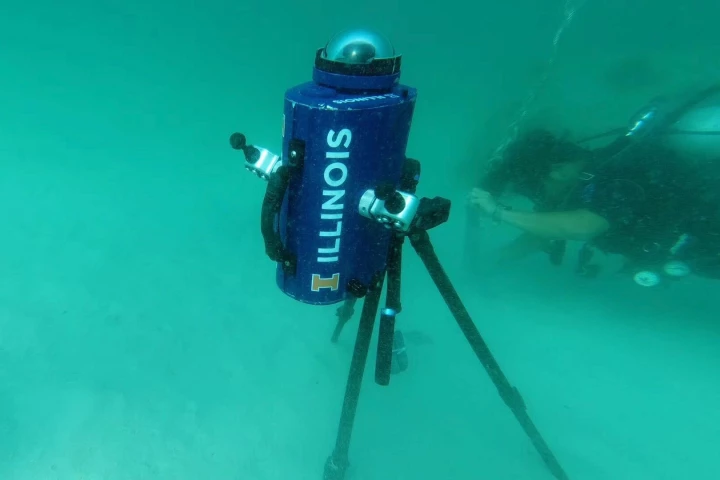GPS
-
If you're going to Mars you'd best take along a jar of anti-aging cream because while you're there you're going to age faster than on Earth thanks to the Theory of Relativity. It's only 477 millionths of a second per day, but that tends to add up.
-
Coros has added the fishing-focused Nomad GPS watch to its lineup of outdoorsy wearables. With a bunch of compelling features and reasonable pricing, it looks like quite a catch.
-
Even in clear water, it can be easy for divers to lose track of which way they're heading. An experimental underwater navigation system could help keep that from happening, using a combination of electromagnetic waves and HUD (head-up display) tech.
-
The Himalayas are every adventurer’s dream, evoking an overwhelming feeling of grandeur that humbles even the most experienced traveler. But there’s much more to it, a reality that's sometimes overlooked in vacation brochures. Here's how to get started.
-
The UK's oldest bicycle manufacturer has launched an ebike called the One. The chain-free commuter rolls with built-in GPS and anti-theft measure, smart connectivity features, and a "striking new visual identity."
-
With help from small tracking gadgets plus the ubiquitous smartphone, we can now keep tabs on our belongings – wherever they may be. Now a startup is crowdfunding a nifty tag that includes an E Ink screen to display contact details and photos in color.
-
If you're an avid outdoorsperson who explores nature with their dogs, the Satellai tracker could keep your pooch safe in the wilderness. This solar-powered gadget can beam your dog's location straight to your phone using satellite connectivity.
-
Even though today's aircraft rely heavily on GPS for navigation, the technology isn't infallible. That's why an alternative system is in the works, which may allow planes to navigate by "reading the fingerprint" of the terrain they're flying over.
-
While most compasses have a needle that points north, the Truest North Compass is different. Its main needle always points to a location of your choice, while its secondary needle shows the distance to that place.
-
Britain has scored a world-first with a series of test flights to demonstrate the core technologies of a future quantum navigation system that's designed to foil one of the most potentially dangerous, yet not very widely publicized, threats that transportation faces: GPS jamming and spoofing.
-
While GPS can be used to determine one's geographical coordinates on land, such is not the case underwater. Scientists have developed an alternative, however, in the form of a system that analyzes the manner in which sunlight is polarized by water.
-
GPS-enabled tracking collars allow scientists to learn a lot about wild animals, but the devices do have one major drawback – limited battery life. A new tracker gets around that limitation, as it's continuously powered by the animal's movements.
Load More










